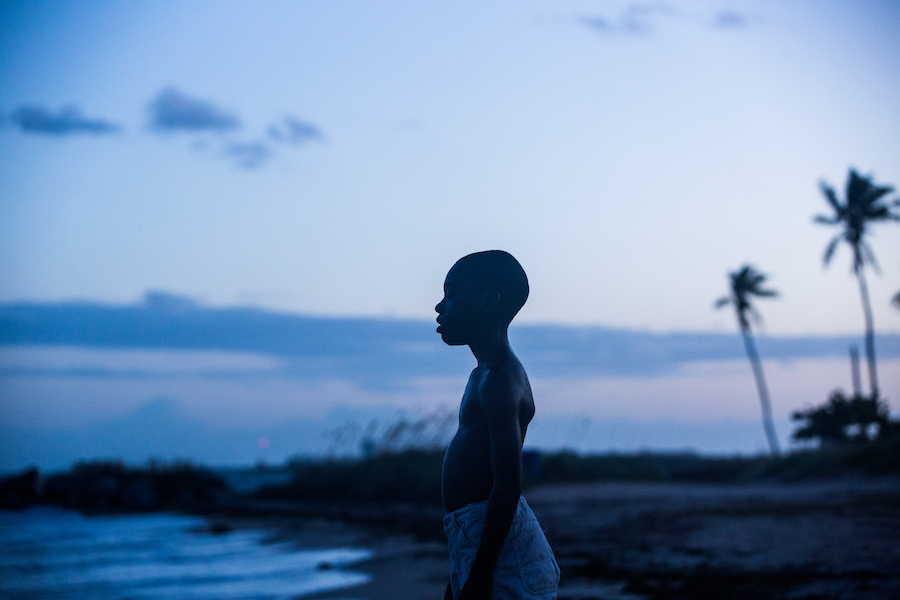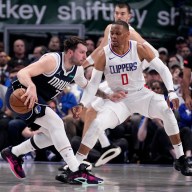‘Moonlight’ Woe to the film dubbed “important.” Granted, breathless praise isn’t a big deal for Barry Jenkins’ “Moonlight”; it can bear the burden of untold accolades. It arrives as a toast of the film festival circuit, hitting a marketplace hopefully ready to receive an empathetic, incisive state of black America. It could be something, like Ava DuVernay’s “13th,” you want to forcefeed Trump supporters who’ve been strapped to a chair, “Clockwork Orange”-style. Still, even they might notice, if they look close enough through clamped-open eyes, that it’s not the message, such that there’s a simple one, that makes “Moonlight” great. It’s the human factor, the messiness and visual beauty, that push it over. RELATED: Interview: Naomie Harris on “Moonlight” and how it’s (sometimes) funny It’s a movie that wants to break free of its own constraints, about a hero who wishes he could do the same. His name is Chiron, and we see him over three different periods, played by three different actors. Raised in the rough Liberty City section of Miami, he morphs from a shy kid (played byAlex Hibbert) into a bullied teen (Ashton Sanders) and, finally, into a hard, grill’d-up adult (Trevante Rhodes). Each narrative leap is a cosmic shock, each transformation a heartbreaker. This, we can understand, is what happens to someone boxed in by society for being black, male and, though he doesn’t always know it, gay. By the time he’s become a ripped drug dealer with a gun shoved into his belt, we’re primed to expect the worst. He’ll be another statistic: a black youth who couldn’t veer from the grim path fate and society had paved for him from his birth. But what happens next is magical. The Rhodes iteration of Chiron whimsically reunites with Kevin, the closest thing he ever had to a friend, and a lover. Now played by “The Knick”’s magnetic, assured André Holland, the latter’s an ex-con who’s cleaned himself up, turning to a modest living as a cook in a sparsely-attended restaurant. He’s happy; Chiron is not. As the two sit down for a meal Kevin cooked, the scene keeps going, and going, and going. It feeds off of the tension of what we think will happen — something grim and art house and message-y — versus what is happening, which is a complicated tete-a-tete, uneasy one moment, disarmingly loose the next. Maybe this will become another “Carol”: a sad movie with a happy ending. This bravura sequence also shouldn’t be unexpected. As a filmmaker, Jenkins (of 2008’s indie romance “Medicine for Melancholy”) has carefully trained us, as viewers, to see the life in a story that seems schematic — that seems to exist to reinforce stereotypes about unhappy black life. But no one and nothing is simple. Time and again Jenkins, working off Tarell Alvin McCraney’s play “In Moonlight Black Boys Look Blue,” sets up scenes that don’t play out as expected, with characters who surprise us. As a child, Chiron befriends Juan (Mahershala Ali) a charismatic local drug dealer; instead of putting him to work on the street, Juan is content to play the father figure. We sense in him, and thanks to Ali’s performance, someone who knows his place in the game, who’s learned to give a performance to survive. Kevin, too, is far from clean-cut. As a teen, played by the excellent Jharrel Jerome, he’s a fun-loving braggart and show-off who still seems in character when he puts the moves on his shy, wounded friend one night on a beach. When he beats Chiron to appease some bullies, we know he’s doing more than simply betraying him. Chiron’s crack-addicted mother (Naomie Harris) is the closest to a stereotype. But even she oozes love through the constraints of her habit. Jenkins trains us to be open-minded in other ways. He likes to use long takes, not to show off his camerawork, but to give scenes room to breathe. The dialogue is rarely on-the-nose, allowing us to cherish throwaway moments, like the way Ali’s Juan likes to pensively lick his lips in between words. The ugliest parts, most arrestingly a bloodied Chiron staring in the mirror after a beating, aren’t ugly; they’re beautiful. The beautiful parts, meanwhile, are transcendent: Juan teaching young Chiron to swim in the ocean, as though baptizing him; Chiron and Kevin’s sudden tryst, their bodies indeed blue in the moonlight; the endless, thrilling restaurant reunion, and its hopeful coda. By the end, calling “Moonlight” an “important” film seems like an insult. It’s even better than that.
Director: Barry Jenkins
Stars: Trevante Rhodes, André Holland
Rating: R
4 (out of 5) Globes
‘Moonlight’ is a drama too alive to be merely ‘important’

David Bornfriend, A24
Follow Matt Prigge on Twitter @mattprigge


















